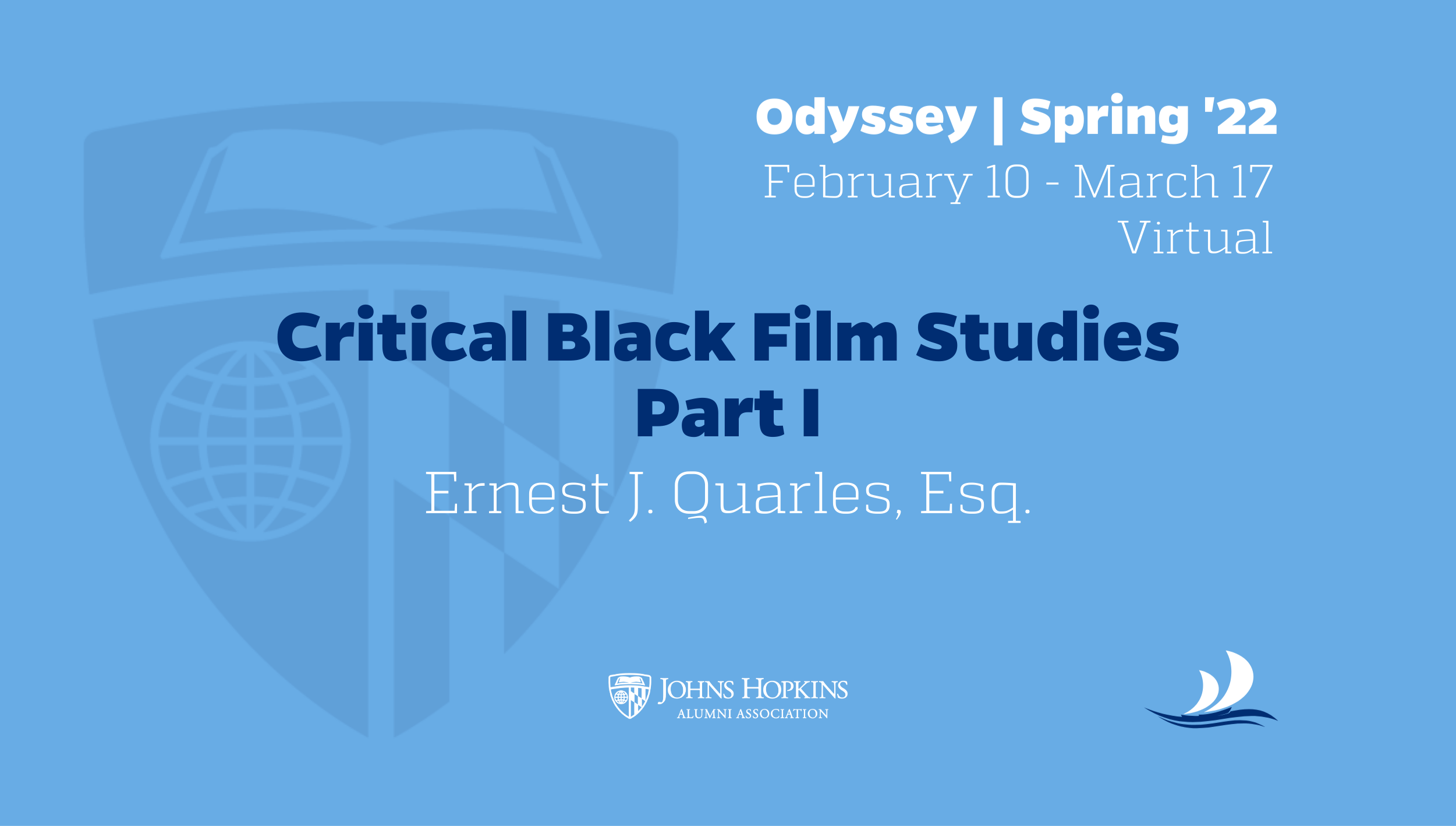Critical Black Film Studies - Part I

Brought to you by Odyssey
February 10, 2022 - March 17, 2022
Thursdays, 6:30 - 8:30 PM ET
Part II of this course will be offered in the Fall 2022 semester.
This course will focus on select film projects which provide a unique lens through which we may analyze both the oppressive nature of Black life in America and the resounding spirit that fashions the improvisation and accompaniment, representation, participation, and creative agency necessary for survival in this ever-changing disunited America.
This course will feature some of the following films and documentaries in addition to some critically acclaimed films and shorts which provide thought provoking imaginaries for our collective future.
Simple yet riveting, The Untold Story of Emmett Louis Till articulates the madness of racism in the South of the 1950s. Combining archival photos and footage with deeply felt interviews, this documentary tells the harrowing story of what happened when a 14-year-old black boy from Chicago, visited his relatives in Mississippi. The reaction of his mother, Mamie Till-Mobley, to his violent murder galvanized the nation and forever changed the course of the civil rights movement in the United States.
I Am Not Your Negro is a 2016 documentary film and social critique directed by Raoul Peck, based on James Baldwin's unfinished manuscript Remember This House. Narrated by actor Samuel L. Jackson, the film explores the history of racism in the United States through Baldwin's recollections of civil rights leaders Medgar Evers, Malcolm X, and Martin Luther King Jr., as well as his personal observations of American history.[3] It was nominated for Best Documentary Feature at the 89th Academy Awards and won the BAFTA Award for Best Documentary.
Jump at the Sun intersperses insights from leading scholars and rare footage of the rural South (some of it shot by Zora herself) with re-enactments of a revealing 1943 radio interview. Hurston biographer, Cheryl Wall, traces Zora's unique artistic vision back to her childhood in Eatonville, Florida, the first all-black incorporated town in the U.S.
In Culture Criticism and Transformation, Bell Hooks displays the factors behind and beyond media scenes and scenarios on the presentation of the American Social and Cultural life, mainly the attribution is given to one group over another whether it is a sexist one or a race gendered more precisely the “White Supremacist Capitalist Patriarchy” which relate directly to the domination system we are living in our society. This documentary should be a wake-up call to all of us, we should be more careful about how media intends to dominate and influence our thoughts and ideas.
Pushout: The Criminalization of Black Girls in Schools is a feature-length documentary that takes a close look at the educational, judicial, and societal disparities facing Black Girls. Inspired by the groundbreaking book of the same name by renowned scholar, Monique W. Morris, Ed.D. The documentary confronts the ways in which the misunderstanding of Black girlhood has led to excessive punitive discipline which in turn disrupts one of the most important factors in their lives, their education.
Sixty years after the Little Rock Nine faced mobs of racially charged hatred and became cornerstones of the Civil Rights movement, Teach Us All: Segregation & Education in the U.S., examines how the present-day United States education system fails to live up to that promise of desegregation as it slides back into a re-segregation of its modern school.
Johns Hopkins Tuition Remission Policies
Current and retired full-time Johns Hopkins faculty and staff, as well as their spouses or domestic partners, are eligible for tuition remission. Eligibility details can be found here.
After registration, tuition remission eligibility will be confirmed by the Odyssey registrar. If eligibility cannot be confirmed, you will be required to pay full tuition for the course. Under the terms of the University’s remission program, Hopkins employees must withdraw in writing at least five working days before the first class to receive a 100% refund. No partial refunds are given to JHU employees and affiliates. All other participants should review the JHAA Event
